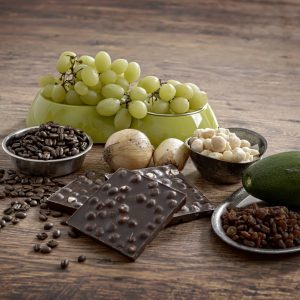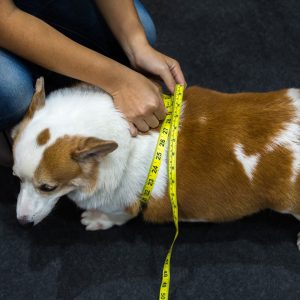Before choosing the best food for your pet you should consult your veterinary surgeon to ensure a complete and healthy diet. Misconceptions about certain types of diets are common, sometimes leading to nutritional deficiencies that could be detrimental.
Home Prepared
There is no evidence to suggest that home-prepared diets are healthier than commercial diets. It is more expensive and time consuming to prepare a complete diet at home than to purchase a good quality commercial one. In general, veterinary nutritionists agree that healthy pets should be fed a complete and balanced, commercially prepared food. This is because unlike commercially available foods, home-made diets have not been adequately tested with animal feeding trials. The primary indication for a home-made diet is a patient with medical problems that cannot be managed appropriately with a commercial food, but this should be guided by a veterinary nutritionist.

Raw Foods
These diets are produced to provide food in the way animals would eat in the wild and can be a combination of raw meat, grains, vegetables, and bones. There is no scientific evidence to confirm that feeding a pet raw versus a commercial diet is more beneficial.
Advantages of raw meat feeding:
- It is considered the ‘ancestral diet’ of pets, which is true for cats (carnivorous) but not for dogs (omnivorous).
- May result in improved immune function and a healthy body condition, but there is no evidence of direct benefit.
- Can be beneficial in certain medical problems such as food allergies. There is however not enough evidence showing significant medical benefits of feeding raw food, but there are some reports that suggest improvement in certain health conditions.
Risks of raw meat feeding:
- There are some concerns on whether they are complete and balanced; in particular, calcium and phosphorus imbalances and specific vitamin deficiencies.
- They can be costly and time consuming compared to the use of commercial diets.
- Not all pets tolerate raw food, and bones within dog food can be dangerous.
- Bacteria such as Salmonella can colonise both pets and owners and cause disease.
- Safety for the pet: Most pets can handle the bacteria in raw food, but occasionally they can develop diarrhoea. Raw food is not appropriate for any pet with a weak immune system (due to disease or drugs).
- Risk of resistance to antibiotics.
- Safety for the owner: microorganisms are abundant in raw food and although freezing and dehydration can reduce the number of bacteria, pathogenic bacteria can survive. This is of concern especially for children, pregnant women, or immunosuppressed individuals. If raw feeding is chosen, safe food handling and correct disposal of the faeces is important. It is very important to wash your hands thoroughly after handling raw food.

Grain free diets
Grain-free diets replace grains like rice and corn with potatoes or legumes (beans, peas, chickpeas, and lentils). Reasons for choosing a grain-free diet are the management of allergies or food sensitivities. This can be of benefit in some dogs but not all, given that the most common allergies are to a protein, such as chicken. There are no studies to suggest that grain-free diets are superior to grain-inclusive diets. For dogs that have a true grain allergy, there could be benefits of following a grain-free diet.
Over the past few years, there has been some concern with regards to an increase in the number of dogs diagnosed with dilated cardiomyopathy, a condition in which the heart becomes weaker and enlarged, which were fed grain-free diets. However, the specific cause for the relationship between grain-free diets and the development of this condition has not been fully understood.
Plant based diets
Motivations for the use of plant-based products as opposed to animal products include health concerns, sustainability, and empathy for animals. However, considering the facultative carnivorous physiology (dogs) and obligatory carnivorous physiology (cats), whether plant-based diets meet the nutritional needs has been questioned. There are no studies to suggest that diets avoiding meat in pets has health benefits, and like with humans, there are risks of dietary insufficiencies. Dogs have dietary requirements for energy and essential nutrients, but they do not have a requirement for animal-derived ingredients specifically, and any diet that meets the minimum nutrient requirements for a specific life-stage would be considered nutritionally sufficient. However, certain nutrient requirements, specifically total protein, taurine, vitamin D and B12, amongst others, are important, and these are usually obtained from animal-based ingredients.
In summary, it is important to be informed when choosing an unconventional diet for your pet and always consult your veterinary surgeon for advice.











